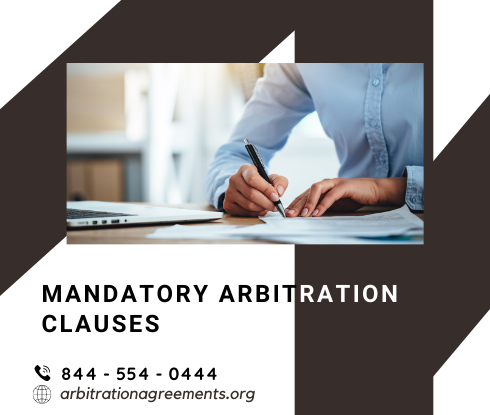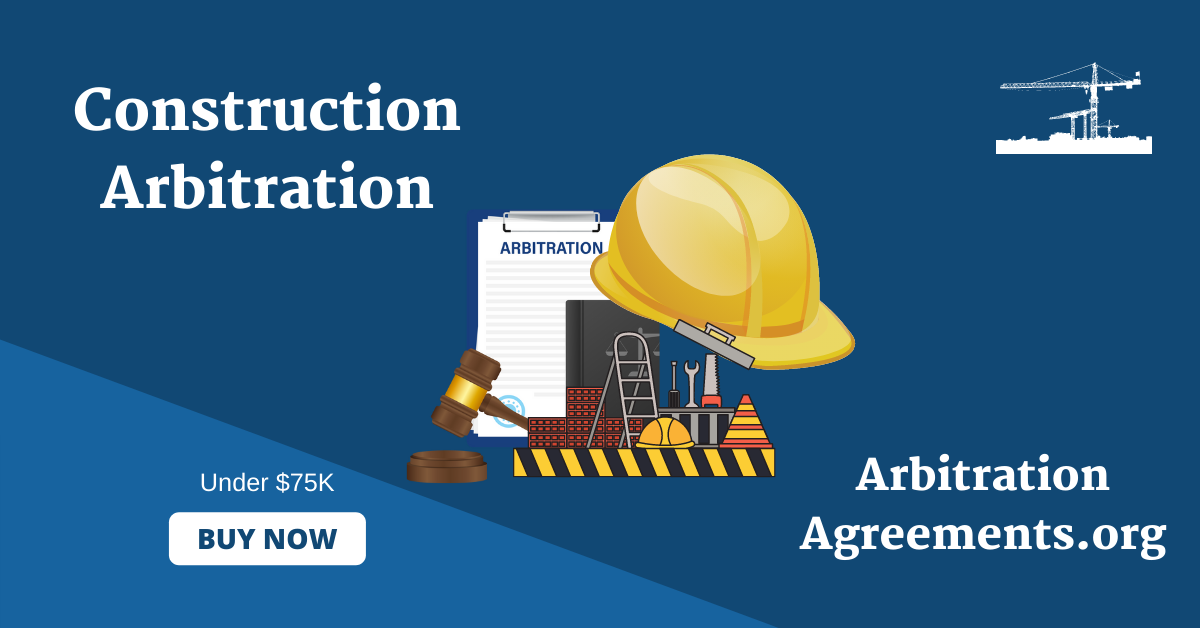The Basics of a Mandatory Arbitration Provision
Mandatory arbitration cannot take place without a provision or clause that enforces it. An arbitration provision ensures parties will resolve their contract disputes a certain way. This means that the parties must appear before an arbitrator or arbitral tribunal. The parties cannot resolve a dispute through the US court system. Sometimes through a provision, parties have to waive certain rights. The most common right to waive is the right to appeal an arbitration decision. Almost all provisions have binding status. This means that an award is final and cannot get appealed. Click here Arbitration Association
The Basics of Mandatory Binding Arbitration
Binding Arbitration Definition, Arbitration, through a mandatory provision, functions as a legal form of settlement. Parties within a contract agree to get a dispute overseen by a third party. That third party cannot operate as a US court judge. Instead, the parties must refer to official arbitrators. No matter the final decision, they have to accept the judgment of those arbitrators. So, when does mandatory arbitration take place? It happens when one party thinks another party violated a provision or agreement. Then, the party seeks damages through binding arbitration. A party will receive an award if the defendant didn’t follow the terms of a provision.
Insurance Policies: An Example of Mandatory Arbitration Provisions
You can find mandatory arbitration provisions within the terms of most insurance policies. A policy provision states that an insured person must submit disputes to arbitration. Why? So that the insurance company can avoid having to resolve a conflict in court. This will save the insurance company both time and money. In fact, that’s the main reason why so many companies avoid the standard judicial system.
The benefits of arbitration also apply to consumers, such as insurance policyholders.
They enjoy expediting the dispute resolution process. As a result, they save money compared to the costs involved with a lawsuit. Arbitrators also have a reputation for lacking bias. This means that arbitrators are less likely than juries to provide an award based on emotion. What is Arbitration vs Litigation
What Is Arbitration?
Arbitration is the number one resource when it comes to ADR. ADR stands for alternative dispute resolution. It involves a disinterested third party hearing both sides of a disagreement. Then, that third party (the arbitrator), makes a binding decision. Think of the arbitration process as a fast alternative to lawsuits. After all, many lawsuits can drag on for years. Most arbitration hearings conclude in one or two weeks.
Some people confuse arbitration and mediation.
That’s because mediation is another popular form of ADR. Mediation involves two disputing parties resolving a conflict in front of a mediator. The role of a mediator is to assist parties in finding a lasting agreement. But there’s one crucial difference between arbitration and mediation. Mediation is not binding. This means that both parties must agree to a resolution for it to have legal standing. But arbitration is binding. Parties must accept an arbitrator’s decision even if they disagree with it.
What Is Mandatory Arbitration?
Arbitration functions as a top ADR (alternative dispute resolution) technique. It provides parties with a functional alternative to litigation. So, when do parties volunteer to arbitrate a potential dispute? Most do by agreeing to an arbitration provision or agreement.
You can find an agreement or provision within many different contracts.
Sometimes people agree to arbitration without even realizing it. Why? Because they signed a contract without reading the mandatory arbitration provision. But that doesn’t mean that parties have to suffer. Arbitration is almost always cheaper and less time-consuming compared to litigation. Well read here difference between Mediation and Arbitration

Why Is a Mandatory Arbitration Provision Important?
So, what is the purpose of mandatory arbitration clauses? They enforce that a party agrees to another party’s pre-dispute arbitration provision. You can find provision after provision within many consumer contracts. Agreeing to these provisions does away with the right to go to a US court. Instead, disputes must get settled through arbitration. You might start to see provisions for mandatory arbitration more often. Why? Because more and more companies are recognizing the benefits that arbitration provides. Speaking of benefits, let’s examine advantages for using a provision in arbitration.
The Benefits of Using a Provision for Arbitration
Companies and individuals alike are realizing the impact that provisions for arbitration have. As mentioned earlier, disputing parties save time and money when they arbitrate. Litigation has a reputation for costing a lot of money. Why? Well, part of the reason has to do with time. Say that you're involved in a lawsuit for two years. That means you must pay your attorney for two years of services.
This means you’ll have to fork over thousands upon thousands of dollars to a lawyer.
Now, say that the same dispute takes place in arbitration thanks to a provision. And the arbitration hearings conclude after two weeks. That means you’ll only have to pay for the services of an attorney for two weeks. This will save you a huge amount of money. In fact, this brings up another benefit of using a provision for arbitration.
Through arbitration, no party has to hire the services of an attorney.
That is not the case in litigation. Parties often have a high degree of control over who an arbitrator is. The disputing parties can work together to find qualified arbitrators. This process depends on what’s written inside a provision for mandatory arbitration. When it comes to litigation, parties never have a say in who the judge or jury is. But with arbitration, parties can find arbitrators that have relevant industry knowledge.
They might find someone that has training within the area of a dispute.
There’s also a lack of formality when it comes to arbitration from a provision. This can make the deposition and discovery process simple and easy. Once again, this often leads to big-time savings.
Are Mandatory Arbitration Clauses & Provisions Legal?
Yes, each provision or clause for mandatory arbitration is legal. The provisions get upheld at both the state and federal level. It’s very difficult for state contract law to interfere with the terms inside a provision. This should provide comfort to any disputing party about to engage in arbitration. Arbitration clauses and provisions get protected under the law in every US state. That protection applies to both standard consumer contracts and class-arbitration waivers.
What Happens if You Refuse Arbitration?
Any US citizen has the right to refuse arbitration. There is only one condition that makes arbitration become mandatory. That’s when someone agrees to a provision or clause demanding binding arbitration. Say that you sign a contract featuring a clause or provision for arbitration. That means that arbitration in the future will function on a mandatory basis. You’ll have to take part in arbitration since you agreed to the clause or provision. Keep in mind that state laws do apply toward arbitration. The laws state that an employer can refuse to hire someone who doesn’t agree to arbitrate. Or, an employer can fire an employee that doesn’t agree to a provision or clause. The key is to read every provision word-for-word before you sign a contract. Then, you won’t risk refusing arbitration with binding status when it’s too late. Visit Arbitration vs Mediation vs Litigation
Can You Still Sue After Arbitration?
No, you cannot sue after arbitration as long as the arbitration has legal binding status. Say that you signed an arbitration agreement with a provision. You now have no choice but to resolve future disputes through arbitration. That’s because each agreement contains clauses and provisions about arbitration. Do you want to keep your options open for filing a lawsuit in the future? If so, do not sign an agreement for arbitration with mandatory and binding status. You can go provision by provision and read the arbitration terms before signing. Click Pre Dispute Arbitration Clause
How Do You Win an Arbitration Case?
There is no clear solution for “winning” an arbitration case. But there are steps that any party can take. One concept to keep in mind is to avoid creating unneeded issues. Concentrate on the main discussed issues and don't get caught up with minutia. Remember- you only have to win the case. You don't have to win every single argument and examination. Present your case in a professional manner using logic and accuracy.
Forced Arbitration Provisions & Clauses in Consumer Contracts
Many contracts now feature forced arbitration provisions and clauses. So, what's forced arbitration? It refers to the exact same legal concept as mandatory arbitration. After all, “mandatory” and “forced” have the same legal definitions. Say that a consumer agrees to a forced arbitration clause or provision. This means the individual gives up the right to sue a company. That person also can't file a class action lawsuit or appeal an arbitration decision . Many consumers aren’t aware when they agree to the terms of a provision or clause. That’s because corporate contracts are dozens, if not hundreds, of pages long. It’s a common mistake to skip over provision after provision within a contract. Also check out Federal Arbitration Act When a dispute takes place, a consumer has no choice but to take part in arbitration. And that arbitration will have binding status. This means the consumer cannot appeal the decision of the arbitrators. This is also a common legal situation during employment disputes. A new-hire might skip over a provision for arbitration in an agreement or contract. That’s why you should make an effort to read every provision that comes your way. This not only applies to arbitration, but toward any contract that you receive. Read about Interest Arbitration
Do You Need Help With Anything Related to a Provision for Mandatory Arbitration? Contact Us Now
Our association's here to provide you with help for any process involving arbitration. We can do it all. From helping you draft a provision to interpreting a provision in a contract on your behalf. All you've got to do is give our arbitration experts a call right now. You're also welcome to email us or message our staff here on our website. Mandatory arbitration isn’t as complicated as many people assume. And we’re here to answer your questions and help you find the right legal solutions. We look forward to helping you succeed. Also visit Arbitral Tribunal









